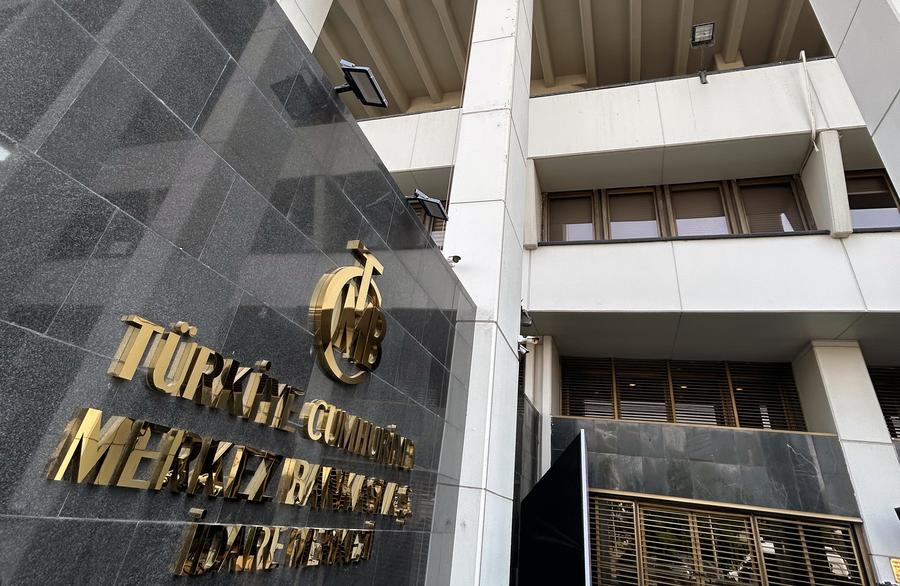by Burak Akinci
ANKARA, Jan. 25 (Xinhua) -- Türkiye's central bank on Thursday ended a sharp tightening cycle by delivering a fresh rate hike of 250 basis points to tame double-digit inflation, as analysts expect monetary policymakers to maintain a hawkish stance to ensure sustained price stability.
The central bank's monetary policy committee raised the benchmark policy rate from 42.5 percent to 45 percent, in line with the expectations of the market and many economists.
This is the eighth straight hike since June 2023, when Türkiye moved to overhaul its monetary policy in the face of staggering inflation.
"Taking into account the lagged impact of monetary tightening, the committee assesses that the monetary tightness required to establish the disinflation course is achieved and that this level will be maintained as long as needed," the bank said in a statement.
Senol Babuscu, a professor of finance from Ankara's Baskent University, said the central bank thinks the rate has been "high enough" for the disinflation trajectory.
"The bank will very likely maintain this rate for a couple of months and then assess the developments in the economy following local elections" scheduled for late March, Babuscu told Xinhua.
He said if the inflation exceeds the forecast range in April, the bank may deliver another rate hike, adding it otherwise may start reducing the policy rate in September, "if everything goes to plan regarding disinflation."
Türkiye's annual inflation, which stood at 64.8 percent last December, is officially forecasted to peak at 75 percent in May-June before dropping to 36 percent at the end of this year.

After Turkish President Recep Tayyip Erdogan won re-election in May 2023, the government began to reverse the low-interest rate policy that has left many Turks struggling to afford food and other basic goods and turned to an aggressive tightening policy.
The central bank's interest rate has since then been raised from 8.5 percent to the current 45 percent.
On Jan. 12, the rating agency Moody's revised Türkiye's outlook to positive from stable, citing the decisive change to the country's monetary policy.
To ease the burdens on households, the Turkish government has adopted a bold minimum wage hike of 49 percent starting January for millions of workers, but higher wages also contribute to pushing up inflation, as minimum wage earners constitute around 40 percent of the country's workforce, a much higher proportion than in European countries.
The upcoming municipal elections, where Erdogan seeks to win back control of the largest city Istanbul and the capital Ankara, both of which his ruling party lost to the opposition in the 2019 elections, will also test policymakers' determination to maintain course.
Analysts fear that outsized public spending to win the elections may fuel inflation and hurt the disinflation course.
British multinational investment bank HSBC warned earlier this month that vulnerabilities remain in Türkiye's macro policies and "premature easing could risk reversing recent gains."
Some observers worry that the Turkish leader may not support the rate hikes, which have put the screws on credits and loans, for long, nor engage in structural reforms to ensure sustainable growth.
Mahfi Egilmez, an economist and a former advisor to the Treasury, said on his blog that fiscal policy has to be tightened throughout 2024 and that the public sector has to cut spending for the rate hikes to deliver positive results.
Otherwise, he warned, there will be "a further increase in inflation and the exchange rate and a much heavier tax burden" on consumers.
The economist also emphasized the need for structural reforms to combat inflation.
"The only way to break the phenomenon of inflation rigidity or inertia is to create positive expectations for the future. This leads to structural reforms," Egilmez noted. ■












